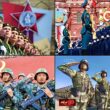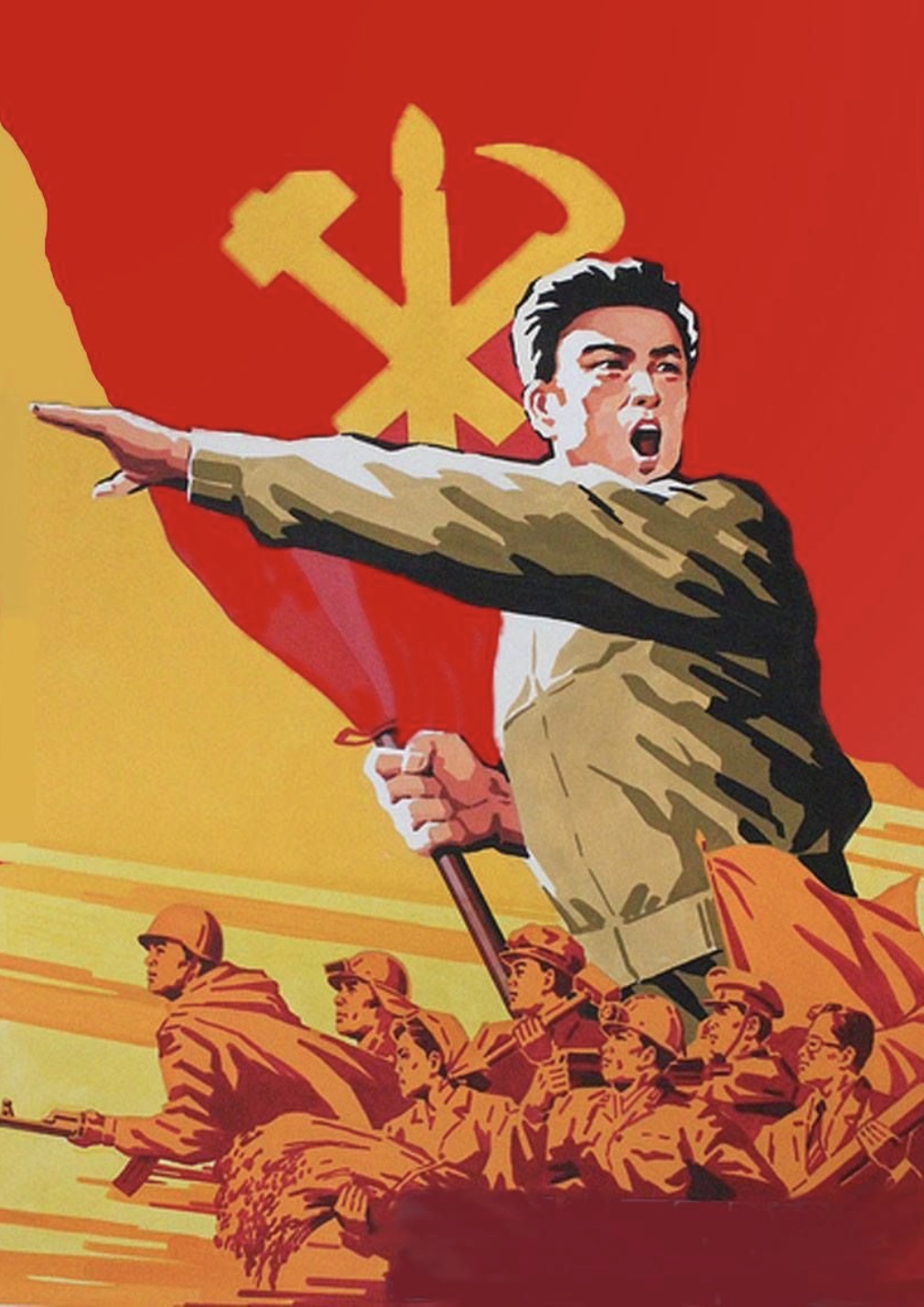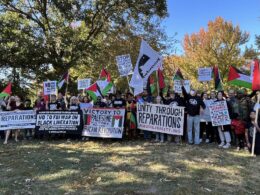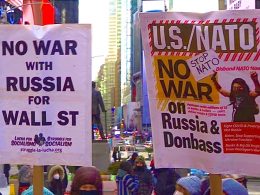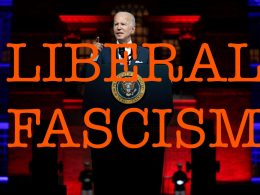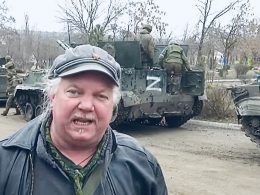When Operation Z began, the DPRK’s foreign ministry published a commentary that in effect endorsed Russia’s decision to intervene within Ukraine. It read: “The U.S embellishes its own interference in internal affairs of others as ‘righteous’ for peace and stability of the world, but it denounces for no good reason self-defensive measures taken by other countries to ensure their own national security as ‘injustice’ and ‘provocation’ – this is just the arrogance of the U.S. style and its double standard. Gone are the days when the U.S. used to reign supreme. The U.S., seeing through the trend of the present times, should no longer resort to high-handedness and arbitrariness that disturb international peace and stability.” This is the stance that all communist parties must take towards the conflict.
An anti-fascist war
The analyst who wrote this without a doubt had the Korean war in mind. When Kim Il Sung took military action against the south, the imperialists claimed he was the aggressor in the conflict, and the UN gave sanction to an effort to “defend” the south in which the U.S. murdered a quarter of the north’s population. The enemies of the DPRK say the UN was merely recognizing a transgression by the north, but the context they always leave out is that the south was plotting to invade the north first. The south’s dictator, who came to power through an imperialist project to set up an outpost on the peninsula, intended to impose his horrific system of anti-communist repression upon the socialist republic.
It’s no surprise that Korean communists are supporting Russia’s intervention in Ukraine; they share an experience with the Russians, who’ve appropriately been guided into taking action by the Communist Party of the Russian Federation. In 2014, the imperialists set up a fascist regime in Ukraine, a place that’s historically a part of Russia, and used this regime to threaten the Donbass Russian speakers with ethnic cleansing. When the endangered population fought to break away from the regime’s jurisdiction, the regime shelled the Donbass in an ongoing series of war crimes. Its Nazi regiments would have invaded the Donbass and murdered far more ethnic Russians, if Russia’s troops hadn’t saved the targets at the last moment.
Washington’s threat to use Ukraine to put nuclear missiles on Russia’s borders isn’t even the biggest part of the case for why Operation Z is justified; the mandate to save a population from genocide is reason enough to support Z, and to reject Washington’s narrative about Russia being an aggressor. The narrative that Russia itself is an imperialist actor, and that therefore neither side should be supported, isn’t supported by a materialist analysis either. Russia lacks the socioeconomic characteristics required for it to be considered an imperialist power, and the analysts of the ruling Workers Party of Korea have evidently come to this conclusion. Being a serious Marxist party, it doesn’t even pay heed to this distraction of an argument. The Russians are not the oppressors, but historic victims of a colonization attempt by Nazi Germany, which took 27 million of its people’s lives. Russia still hasn’t numerically recovered from this genocide, its population is still declining because of it. By fighting to neutralize the Nazi menace in Ukraine, Russia is retaliating against those who seek to finish Hitler’s project for exterminating the Russian people.
What does this nature of Russia’s role in the conflict mean for communists in the imperial center? It means we must back Russia’s effort to crush fascism, which from a strategic perspective requires recognizing that Operation Z was not done recklessly. It was embarked upon at the opportune time for making U.S. imperialism come out of the ensuing conflict in worse shape than the Chinese-Russian bloc will. The expansion of NATO into Sweden and Finland has only sped up the decay that these imperial powers are experiencing. The entire U.S. bloc is headed towards economic implosion, and has further isolated itself from the peripheral countries by posing the question of whether everyone wants to back Washington’s war against Moscow. Every country apart from the imperial powers has answered no.
From a global point of view, supporting Operation Z represents a net positive for the anti-imperialist cause. The dilemma which communists in the core face is that from a domestic point of view, supporting it comes with individual and organizational sacrifices. Yet a proper understanding of class and anti-imperialist struggle shows that these sacrifices are worthwhile. Not just because as communists in the imperial center, the stances we take have the potential to effect what happens in the countries imperialism targets. But also because Juche, the universal revolutionary framework that the DPRK is guided by, calls for sacrifices to be accepted when necessary for dealing harm to the enemy.
Kim Il Sung wrote that “To turn away from the revolution on the pretext of avoiding sacrifices is in fact tantamount to forcing the people to remain in lifelong slavery to capital, forcing them to tolerate for ever the cruel exploitation and oppression, unbearable maltreatment and humiliation, enormous sufferings and sacrifices. In general the acute pain experienced at a revolutionary turning-point is always much easier to endure than the chronic pain caused by the ulcers of old society.”
It’s for this reason that the Party of Communists USA has decided to accept the costs of backing Z, and voiced its support for Russia’s actions: “We are ultimately against war. Wars between capitalist states ultimately harm the working class, only benefiting their respective ruling classes. Yet, when imperialism and fascism threaten the working class, it is sometimes necessary, as in 1941, to confront them with force. An anti-fascist war is a just war. Internationally, the time has come to mount an offensive against fascism and its rehabilitation in Europe, the United States, and beyond.” The world’s ultra-leftists and social pacifists would find this statement appalling. But it’s entirely consistent with the Marxist perspective on when war is necessary, and on how to handle contradictions.
Z represents progress for the global communist movement
The calculus the PCUSA makes by calling Russia’s intervention justified is a shrewd one, but it’s one that’s correct from a dialectical perspective. It’s true that the workers in both the U.S. bloc and Russia are being harmed by this conflict. As we in the imperialist countries feel the impacts of inflation, energy crisis, and militaristic austerity, Russia’s proletariat is experiencing an economic downturn that’s severe, in spite of its being mild enough to put Russia on track towards winning the economic war. In terms of street-level political conflicts, the war is emboldening Russia’s fascists and monarchists, these reactionary forces exploiting the nationalist fervor to rally towards terrorizing the workers movement. These fascist strains have a presence within the government itself, a presence that could become more influential as the bourgeoisie align with fascism to try to crush class struggle.
The damage that Khrushchevite revisionism’s destruction of Soviet socialism did to Russia, and to the other former Eastern Bloc countries, is apparent in how they’re handicapped at handling this crisis. Russia’s being a capitalist state makes its capacity to denazify Ukraine limited, because fascism can’t be eliminated until the socioeconomic roots of it are taken out. That can only be done when the Soviet Union is restored.
The USSR’s demise has posed an equivalent obstacle to anti-imperialism within Kazakhstan; since Russia’s peacekeepers put down the country’s attempted U.S. color revolution this January, the right-wing Kazakh government has continued its decommunization campaign. Which has gone along with its heading in a pro-imperialist direction, strengthening its economic ties with Washington and drifting away from Russia and China. Kazakhstan’s leadership has a similar mentality to that of Putin, who’s tried to partner with the imperialist bloc at every opportunity until Washington has made this unfeasible. This is a mentality of opportunism, where whatever action that’s seen as most self-beneficial at the moment gets pursued. This sometimes works to imperialism’s detriment, and sometimes doesn’t.
Principled communist parties like the WPK and the PCUSA are backing Z amid all of these contradictions because they see that in the broader geopolitical context, Z has a revolutionary characteristic. And any revolutionary development brings the globe, including these former Soviet states which are mired in bourgeois influence, closer towards socialism.
For the time being, the fascists within Russia’s government are sidelined. Despite the long-term threat of Russia’s crises producing a fascist upsurge, this lack of influence among them is actually due to the war. The Communist Party of the Russian Federation has responded to Washington’s meddling in Ukraine by pressuring Putin into intervening, and it’s been a major factor behind why Z happened. Even though the CPRF was late among Russia’s other parties in officially backing Z, the CPRF had been urging Putin to take some form of decisive action against Ukrainian fascism since the coup in 2014. It was only hesitant to back Z because it needed to struggle against its own liberal elements. And ever since the party became explicitly pro-Z, Putin’s actions have been defined by the party’s great parliamentary sway. The CPRF’s revolutionary elements are guided by the lessons for militarily combating fascism which Stalin left behind for them. These lessons are now being applied by Russia’s government as a whole.
Because of how much power over Putin and his government that this war has given the communists, they’ve managed to marginalize the fascists, minimizing the threat posed towards the struggle of Russia’s working class. This assertion by the CPRF of its own agency is among the indications that the party, following its history of compromise and revisionism, is drifting in a more revolutionary direction. The communists used to cower under the authority of the capitalist state. Now it’s the other way around. In this way, Washington’s provocations against Russia have brought far closer the prospect of a Bolshevik revolution 2.0, and a Soviet restoration.
Should this trend of a rising and increasingly radicalized CPRF continue, Russia will take the steps required to reverse Kazakhstan’s pro-imperialist transition, and carry out a Kazakh equivalent of Z. By that point, the entire game may be dramatically changed. The push and pull between the U.S. and Russian capitalist ruling classes will end when the Soviet Union comes back, which will render the U.S. hopelessly isolated by taking away its post-Soviet imperialist proxy war states. The end goal of communists in Eurasia is to make it so that no post-Soviet state, whether Ukraine or Azerbaijan, can any longer be used by Washington to try to destabilize the region. Z is not ideal. But it’s bringing Eurasia closer to full liberation from imperialism, and therefore bringing the globe closer to proletarian revolution in all countries.
The need for unity behind Z among the world’s communist parties
The success of the CPRF is the most important variable in the question of whether the USSR gets reconstituted. And because the circumstances have prompted the CPRF to reject the stance that Russia is waging an imperialist war, and to back Z’s component of fully demilitarizing the Kiev regime, it’s getting better equipped to serve as the vanguard in this task. The party’s current ideological conflict is between the ultra-lefts who call Z an imperialist intervention and claim that going after Kiev’s broader military installations goes too far, and the side that’s committed to anti-fascism. The latter element is the one that’s winning, using its power to expel those who promote Washington’s poisonous rhetoric about the nature of the conflict.
The party recognizes that the contradictions within this situation don’t constitute a sufficient reason to oppose Z. It understands Mao’s analysis on contradictions: that the primary contradiction is what matters the most, and the secondary contradiction shouldn’t interfere with unity in the revolutionary struggle. With the primary contradiction being U.S. imperialism, an action that weakens U.S. imperialism is revolutionary. As Kim Il Sung wrote: “The differences of state socio-political systems, political views or religious beliefs can by no means be an obstacle in the way of joint struggle against U.S. imperialism.”
The better unified the global communist movement is behind Z, the smoother the progression can be towards imperialism’s defeat, and towards the worldwide victory of the workers struggle. The arguments the anti-Z elements make about Russia being “imperialist” or “reckless” are covers for the true essence of their case, which is that because participating in or backing Z poses costs, supporting Russia in this war is not worthwhile. This is an argument for cowardice in our practice, which Kim Il Sung’s writings and the other aspects of the Juche idea seek to repudiate.
Juche is a universal principle within the global communist struggle, rather than merely Marxism applied to Korea, because Juche has lessons that can be applied by any Marxist in any part of the world. Its military-first “Songun” policy isn’t universal, but its essence of not yielding to imperialist attacks must be understood and practiced by every communist.
By not entertaining the arguments that undermine Z, the CPRF is acting according to the same mentality behind Juche. By not giving into the pressures from America’s Ukrainized pro-NATO discourse, the PCUSA is applying Juche’s principles. Backing Z makes the PCUSA unable to build ties with liberal activists, particularly of the “antiwar” kind who view Russia’s intervention as analogous to the Iraq invasion. But it’s given the party an opportunity to reach a more valuable demographic, which is the facet of Americans who’ve been questioning the fundamental ideas behind their government’s foreign policy orthodoxy.
It shouldn’t matter that these Americans still hold most of the incorrect beliefs their conditions have instilled them with. This problem can and should be rectified. Lenin clarified that a Bolshevik party must work to lift the average person up to the level of an ideologically trained cadre member. We are capable of carrying out the educational programs and ideological org discipline required to build an effective anti-imperialist movement. We only need the principles and the commitment.
Kim Il Sung wrote that:
In order to establish Juche in ideology, it is necessary to equip oneself with the revolutionary idea of the working class and with the policy of one’s party. The working class is an independent class, and their revolutionary thinking is an independent thinking. Only when one is equipped with the revolutionary thought of the working class, will one be able to carry out successfully the revolution and construction, however difficult and complex the situation is, with the awareness that one is the master of the revolution. The policy of the revolutionary party of a country, the embodiment of the revolutionary thinking of the working class, is the guide to the revolution and construction in that country.
The revolutionary thought of the working class does not lie within the ideas of the Russian and American liberals who oppose Z. It lies within the ideas which are in the interests of the working class. Which, whether you’re in Russia or in the imperial center, are the ideas that constitute Z’s anti-imperialist guiding principles. We in the core should take example from how the CPRF and the WPK analyze geopolitics, and reject the liberal perspectives on this war. The class conflict, and by extension the anti-imperialist conflict, are escalating. We need not be afraid of what the imperialists will do to us in retaliation for taking the correct side in this fight, because history is on that side.
—————————————————————————
If you appreciate my work, I hope you become a one-time or regular donor to my Patreon account. Like most of us, I’m feeling the economic pinch during late-stage capitalism, and I need money to keep fighting for a new system that works for all of us. Go to my Patreon here.
